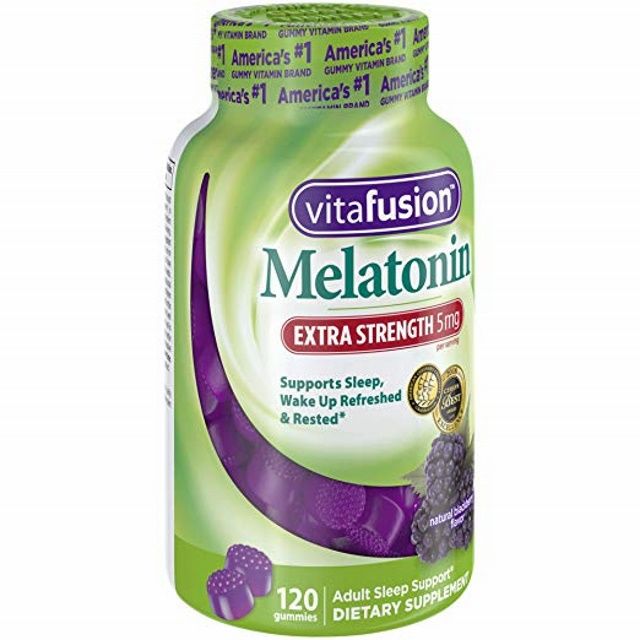Melatonin is the “sleep hormone”, produced by the brain’s pineal gland. As you’re getting ready to sleep, your body naturally starts to secrete this hormone, helping your brain and your body relax in anticipation of rest. While a lot of dietary melatonin supplements are labeled as being “natural”, there are still concerns on whether these pills are completely safe for use. The idea of taking natural pills and sleeping for eight hours straight surely sounds appealing, but what about melatonin supplements side effects?
How It Works

Melatonin works in two important ways: it helps you fall asleep faster, and keeps you sleeping for longer. There is just a thing as your body’s natural sleep-wake cycle, which is known as the circadian rhythm. This is an internal clock that runs inside your brain, causing you to sometimes feel sleepy, and feel awake and energized at other time.
For example, if you have a regular sleep-wake cycle, you will most likely be sound asleep between two and four a.m. The interesting thing about it is that the shifting between alertness and sleepiness isn’t really noticeable unless you are deprived of your sleep hours.
Your sleep-wake cycle can be disrupted when there is something influencing the ratio between the time when you are asleep and the time you are awake. If you are a night owl, and like spending your nights awake to work, but sleep eight hours during the day, that’s not necessary considered a disruption.
However, if you sleep eight hours tonight, only three the next night, then spend 20 full hours awake, then sleep a couple of more hours, that’s when your brain and your body starts to go off track.
But what part does melatonin play in all this? When your body is getting ready for bed, it will release a number of hormones that naturally aid in the process. These hormones are secreted at specific times each day. For example, when you have slept enough and are ready to wake up, the body will prepare for this routine.
Melatonin is a hormone that causes you to feel sleepy, and drops your body temperature. Here are some more interesting facts about melatonin:
- The quantity of the secretion decreases with age. You may have already noticed that older people have a more disrupted sleep, sleeping less hours, or waking up more often during the night.
- Light inhibits the secretion. Your melatonin levels are particularly low during the day. At night, it’s not recommended to use artificial light (especially blue one) if you’re trying to go to sleep. It’s just the brain sending the wrong signal to your body, instead of preparing it for nap time.
- Melatonin also acts as a powerful antioxidant.
- It can also prevent certain DNA molecules from being damaged by cancer cells.
- Melatonin also interacts with your immune system through several mechanisms, but it is also known for aggravating certain autoimmune conditions, like rheumatoid arthritis.

These supplements come in many forms: they can be pills, chewables, or even liquid form. While melatonin supplements are generally recommended for long-term use, they can be very efficient in the short term.
They’re known for helping people who work night shifts, pass through periods of stress and are unable to fall asleep, or for those who have changed time zones and have to adjust to a new sleeping schedule.
You may want to read: Using Melatonin Supplements for Sleep
Melatonin Supplement Side Effects
Much like every other pill in the world, melatonin supplements do have their own side effects, but not nearly as drastic as some of the other types of medication. That’s because there aren’t any chemical/artificial ingredients, so melatonin supplements are mostly natural.
To be quite frank, the side effects that melatonin supplements can bring to the table haven’t been studied enough.
For example, there are a lot of countries in Europe which only give melatonin supplements with a medical prescription, and only to adults.

Several studies have been conducted to determine whether these supplements are truly safe or not. Results have revealed that melatonin supplements do not cause long-term side effects, and knowing the ones causes on shorter terms are easy to work around with a few tricks.
Because these supplements are efficient in putting people to sleep, they are recommended for evening use. By taking one supplement one hour or 30 minutes before going to bed, they can give you a full eight hours of rest.
However, taking melatonin supplements where you are not supposed to fall asleep can give a sense of both sleepiness and drowsiness. What specialists recommend is not only careful dosage taken at the right time, but also making sure that when you take them, you actually have time to sleep.
In other words, if you plan on taking melatonin and sleeping for two or three hours, it’s most likely a bad idea. You will wake up feeling rather drowsy and confused, and the body feels like it isn’t well rested.
This, in turn, can make you moody and unable to focus at your maximum capacity. Melatonin supplements are best left for evening consumption, to give your body time to rest as much as it needs.
This is particularly important if your body has a low melatonin clearance rate. The clearance rate is the amount of time it takes for your body to fully eliminate the drug.
Think of this as two different people drinking the same amount of alcohol. One body can completely eliminate four beers in a matter of five hours, while the second one needs eight hours, plus a generous meal, plus a quick nap. Our bodies are different, so the way they react to these things is also different.
Studies have also revealed that there are two categories of people often confronted with this low melatonin clearance rate: infants and the elderly people. Healthy adults don’t normally show any signs of having trouble eliminating the melatonin supplements’ effect from their bodies.

In 2011, the results of a study revealed that people who suffer from dementia are in a worse mood when taking melatonin supplements. Also consider the possibility of being allergic to melatonin supplements. These over-the-counter pills have more ingredients than just melatonin, but people wrongfully assume that just because a medicine is natural, it’s also completely safe. Dandelions are also natural, yet these are people allergic to its white fuzz.
Is Melatonin Overdose a Thing?
The correct answer is… it’s hard to say. From a medical point of view, there isn’t a standard for how much melatonin is safe for everyone. Technically, you can overdose on melatonin, since taking too much can cause a series of side effects, and it can also mess with your sleep-wake cycle.
The important thing to keep in mind, as mentioned earlier, is that everyone’s body reacts differently to melatonin. A person can take one pill and sleep for six hours straight, while another person needs ten hours of sleep when taking the same quantity.
One thing that’s for sure is that children should not be given melatonin unless it’s prescribed by a doctor. A dose of one to five milligrams of melatonin given to a child can lead to threatening complications, including potential seizures.
The best thing to do in order to avoid any potential melatonin overdose is to start taking it in lower quantities, and then increase/adjust your dosage until you discover how much melatonin helps you sleep soundly for a full night’s rest.

Counter-intuitively, taking too much melatonin will do the exact opposite of what it’s supposed to. Your sleep-wake cycle will suffer, making it harder for you to fall asleep. Too much melatonin also makes it difficult for your body to eliminate it, which will cause you to feel tired and sleepy the next day, in spite of the fact that you actually slept a lot.
Melatonin Interactions

In spite of the fact that melatonin supplements are an over-the-counter type of drug (meaning that you don’t need a medical prescription to buy one), it is advisable to talk to a doctor if you plan on taking them and you have some other health issues. If you take other medication for different health conditions, consult with your doctor on whether these supplements are safe to take. Here are some interaction examples:
- Melatonin supplements and anticoagulant drugs don’t go well together, as there is a risk of bleeding.
- Taking birth control pills and melatonin supplements at the same time is not recommended, because one of the effects of birth control is producing melatonin. Needless to say, taking supplements will push melatonin production, leading to excess melatonin levels.
- Those who suffer from lupus or rheumatoid arthritis should also avoid melatonin supplements.
- Another category of medication that could interact with melatonin supplements is blood pressure medication. If your doctors prescribed beta-blockers or calcium channel blockers, you should know that one of the side effects is reducing the melatonin production of your body. Taking supplements to increase melatonin production is unwise, unless you doctor says it’s safe.
You may be interested in: How to Fall Asleep on Adderall
Bottom Line
As we draw the line, melatonin supplements will do more good than harm, provided that your body doesn’t have an abnormal response to taking them. With the help of melatonin supplements, people can regulate their sleep-wake cycle, but can also help them fall asleep in special situations, like when trying to rest during the day after a night shift or in the case of jet lag.
However, the long term side effects of melatonin supplements aren’t to be neglected and, while they aren’t common, they can put you in a bad mood the next day. To prevent such situations, remember two important tips:
- Only take the supplements before going to bed, to make sure that you have at least six to eight hours to enjoy your sleep.
- Start off with a smaller dose, of maximum five milligrams of it. If that doesn’t but it out for you, you can slowly increase the dosage and tweak it for the best results.